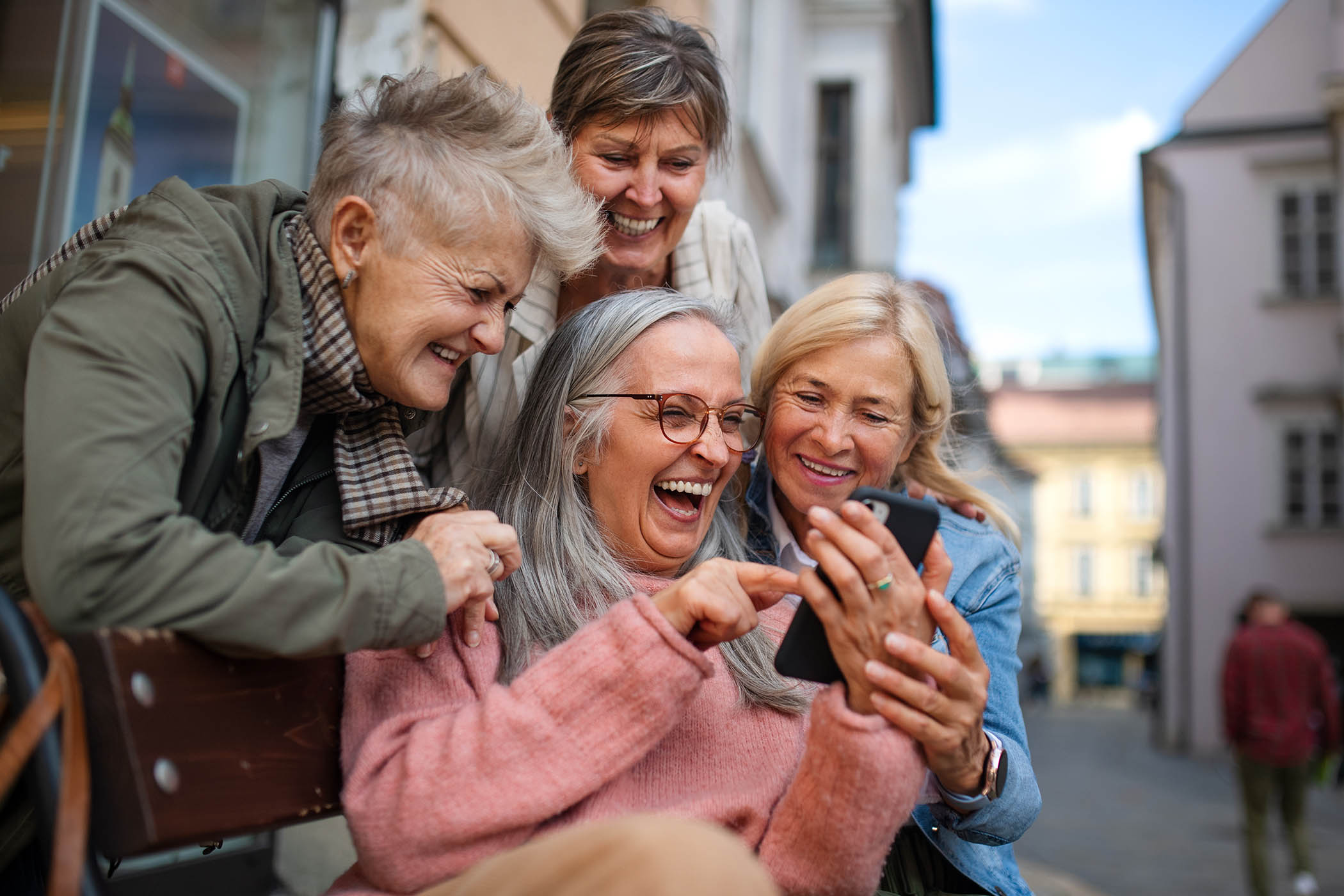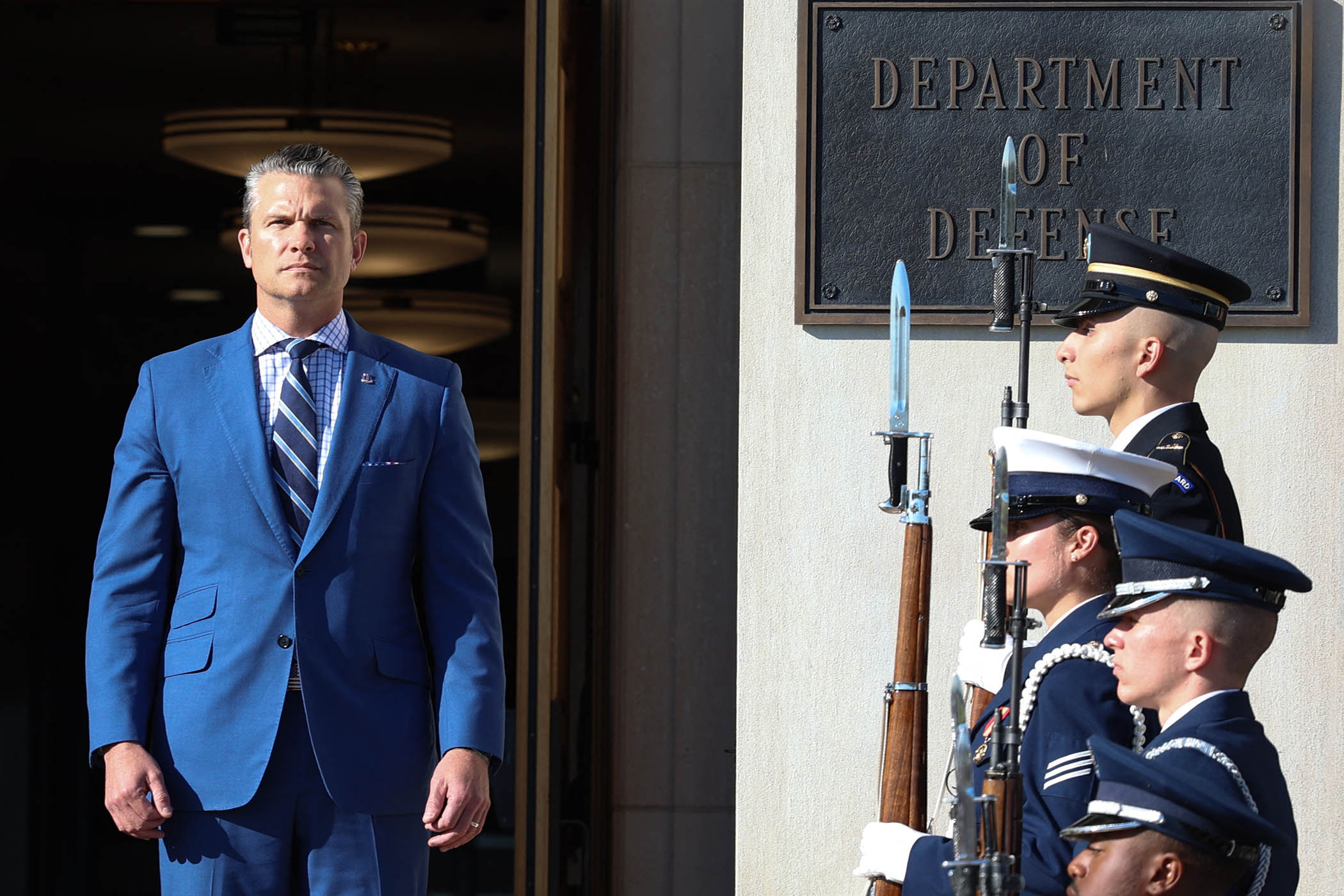It was around the time The Anxious Generation came out that my daughter returned home from school fretting because, she said, “everybody has a phone”. This was the bestselling book by Jonathan Haidt that suggested phones and screens are rewiring our children’s brains and causing an epidemic of mental illness, and I, suddenly, was its perfect audience. Soon afterwards, schools in our borough went “smartphone free” – small battles broke out in parents’ WhatsApp groups about the dangers of our children travelling home without a phone compared with the dangers of living with one. Dangers that were repeated daily, in parliament, on telly, around dinner tables, the threat of phones to children painted so vividly that at some point my daughter, spooked, stopped asking for one at all.
As time passed, Haidt’s book was picked apart, with one psychologist in the journal Nature explaining that, rather than phone use causing adolescent mental-health problems to rise, as Haidt proposes, young people who already have mental-health issues rely on their phones more than healthy peers, warning that this “rising hysteria could distract us from tackling the real causes” of teen anxiety, like structural discrimination, racism, sexism, poverty… And still, debate about kids and phones rolled on.
One day I was sitting on the train nursing a companionable headache when I realised the men opposite were reading aloud from their phones about the threat of phones to children. They were in, perhaps, their 60s, well-dressed in navy jumpers and a state of excitable discomfort as they traded stories. The conversation flipped from outrage, to pity for the children, to terror for a collective future and back again, with ample pauses while each silently checked out to play Candy Crush. It occurred to me that, while great efforts are being made to investigate the effects of phones on children, far less attention is being paid to the effects on their grandparents.
I mentioned it that evening to a friend, who told me about her father, a man in his 70s, whose intense reliance upon his phone seems, to her, inextricably linked to the decline of his mental health. Since the pandemic he spends much of his time reading the news on his phone, a fact she only became aware of when he started sending her links warning about the threat of violence at peace marches, then links to increasingly right-wing stories. Everything’s getting worse, he tells her, and after retiring from a highly pressured career, monitoring this collapse throughout the day and night appears to have become his new job. Now he rarely leaves the house.
People who didn’t grow up with the internet are more likely to take its misinformation at face value
People who didn’t grow up with the internet are more likely to take its misinformation at face value
Last year, the Office for National Statistics found the over-70s are second only to those in their 20s when it comes to the average amount of time spent online. Which, of course, has many benefits, but can also lead to violent complications. In 2022, the Ministry of Justice reported that there had been a marked increase in internet radicalisation of “the older generation”. That was the year Andrew Leak, 66, firebombed a Dover migrant centre, leaving behind a laptop heaving with racist posts and conspiracy theories he’d shared from far-right groups on Facebook. Of people aged 65 and over, 77% describe Facebook as their main form of social media. This is the site, incidentally, that has just stopped employing professional fact checkers.
All of social media is rife with misinformation, but older people, who didn’t grow up with the internet, are more likely than their children to take it at face value. And while it’s a useful tool in fighting loneliness, it can cut both ways. There was a 52% rise in romance scams among people aged over 55 in the past year, with the 75- to 84-year-old victims losing on average £8,068 each. Lloyds Bank shared the story of an 80-year-old female customer who met “Freddie” playing a word game on Facebook. He told her his son had died and he couldn’t pay his tax bill; she ended up losing £11,000.
These are extreme examples of older people’s vulnerabilities online, but anecdotally there are far more who seem uncomfortably locked into their phones. One friend told me about her insomniac mother who regularly reels off “rot” she’s read on Facebook at 4am, and the endless useless packages she can’t afford that arrive from Instagram ads. Another described the ongoing struggle she has with the way her mother-in-law is fixed on her phone when babysitting her grandson, and her concerns at the endless Trump speeches served by her elderly dad’s YouTube algorithm. His anxiety is both stoked by and situated in his phone – he worries he’s lost it when it’s still in his hand. In a conversation that could have easily been about his teenage son, a colleague told me of his shock seeing his 80-year-old mother’s Screen Time report.
My generation’s relationships to its phones are undoubtedly similarly complex and dire, but our awareness of this is so developed there are whole industries now designed to combat them. In your 30s and 40s, the act of breaking up with your phone is now as cliched as becoming lost within it. And while the conversation around kids and phone use continues to provoke fury, fear and noisy debate, the elderly seem to inspire far less interest. Is there another “anxious generation” we’re choosing to ignore? 
Photograph by Getty Images
And another thing… Old glamour, new tech and grown-up confections
Bathing beauty As I lean in to the magic of autumn, I’m not coveting a trip to the beach so much as I’m coveting this brilliant beach towel. The artist Nina Fowler has printed her pencil drawing of Bette Davis (as Margo Channing in All About Eve) on to extra-large towels, ideal for soaking up bathwater and/or glamour. If you’re keen to add a little drama to your bathing rituals, they’re available at notmyfaulteditions.com.
A Ziippidy doodah There’s nothing quite like applying electrical currents to the face to wake you up. I’m testing out the Ziip Halo, which uses ‘dual waveform’ technology to lift and sculpt your face using little zaps that you don’t feel – except when you do; to me it feels like the gentle touching of a nerve, but oddly pleasant, too. I look forward to presenting my new razor sharp jawline in the new year.
Teddy to order In a cafe in King’s Cross, I once enjoyed a cup of Alain Ducasse’s £15 Yemeni coffee, delicious even at £1.50 a sip. Their chocolate is famously superb, but rather grown-up, so I was tickled to discover they now sell little boxes of marshmallow teddy bears. These are geometrically abstract teddies made of marshmallow with hazelnut praline, covered in a crispy coating and – naturally – very good dark chocolate. Imagine a loved one’s face as they open the box. And then again, as you bite a bear’s head clean off.
Newsletters
Choose the newsletters you want to receive
View more
For information about how The Observer protects your data, read our Privacy Policy



